Sadie Bragg | Harold Levy | Joseph N. Hankin |Harold Noah | Olivia Hooker | Pearl Rock Kane
Equation Changer: Sadie Bragg
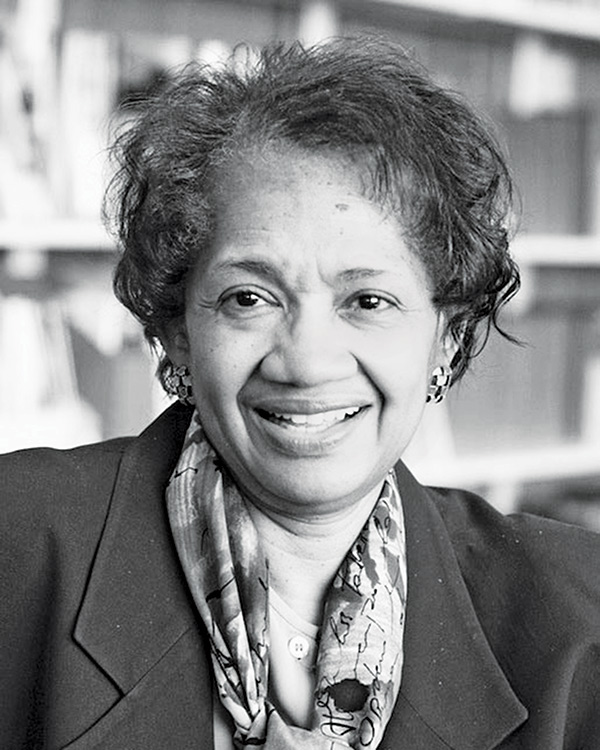
Sadie Chavis Bragg (Ed.D. ’80) (Photo Credit: TC Archives)
Sadie Chavis Bragg (Ed.D. ’80), former Provost, Senior Vice President of Academic Affairs and Professor of Mathematics at Borough of Manhattan Community College (BMCC), died in October at 74.
Bragg co-authored more than 60 textbooks on mathematics for students K–14. She served as President of the American Mathematical Association of Two- Year Colleges, receiving its Mathematics Excellence Award in 2010, and was a member of the U.S. National Commission on Mathematics Instruction and the National Academy of Sciences.
Bragg earned her TC doctorate in College Teaching of Mathematics and devoted her career to expanding educational opportunities for others, especially students of color and women. Early on she taught junior high school, including at an alternative school of the New York Urban League Street Academy. She also coordinated a college-bound program for youth and lectured on mathematics for college-bound adults at the Manhattan Educational Opportunity Center.
“When I taught mathematics to respiratory therapy students, I used many applications about their discipline, because students could do the algebra, but they couldn’t relate it to respiratory therapy,” she recalled. “They didn’t realize the relationship between the gas laws they were studying and logarithmic functions, or how formulas in their chemistry class related to those in math class.”
Bragg served on the Advisory Board to the Education and Human Resources Directorate of the National Science Foundation (NSF), where she helped write the NSF document Shaping the Future. “I want to see math across the curriculum like writing across the curriculum,” she said. She also chaired the NSF report The Integral Role of Two-Year Colleges in the Science and Mathematics Preparation of Prospective Teachers. Bragg received the Outstanding Alumna Award from TC’s Department of Mathematics, Science & Technology in 2005.
Progressive Visionary: Harold Levy
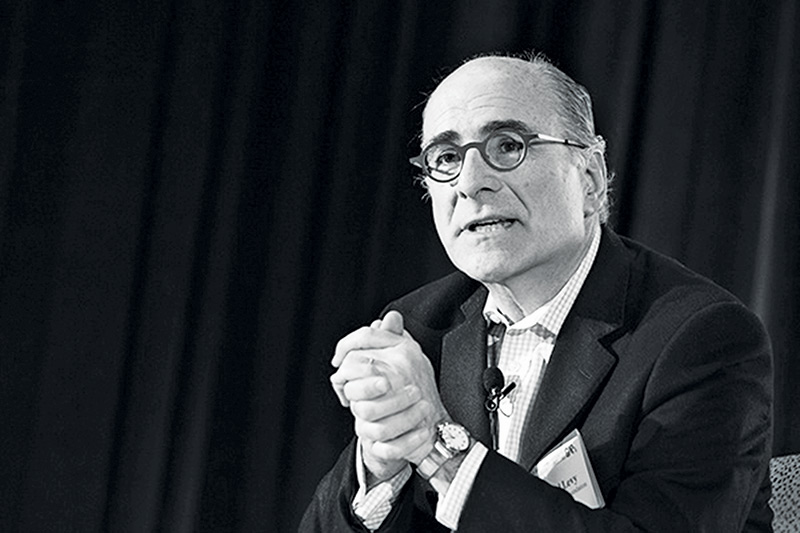
Harold Levy (Photo Credit: TC Archives)
Harold O. Levy, education philanthropist, former New York City Chancellor and member of Teachers College’s President’s Advisory Council, died in November at age 65.
As Chancellor from 2000 to 2002, Levy organized a summer school for 300,000 failing students; created the New York City Teaching Fellows, a forerunner of Teach for America; won a reputation for eliminating bureaucracy; established college-level instruction programs; opened three specialized schools; and oversaw a new contract that raised entry-level teaching salaries and brought more people into the profession.
“Harold Levy was a remarkable man whose progressive vision dramatically improved our city’s schools and the futures of countless students while drawing a diverse new generation to the teaching force,” said TC President Thomas Bailey.
Levy subsequently served as Executive Director of the Jack Kent Cooke Foundation, which generously supported creation of TC’s online program in College Advisement, aimed at professionalizing that field. The program offers continuing education for high school counselors, college advisers, teachers and school paraprofessionals, with a particular emphasis on increasing their multicultural and social justice competencies.
Big Man on Campus: Joseph N. Hankin
A community college president for the ages
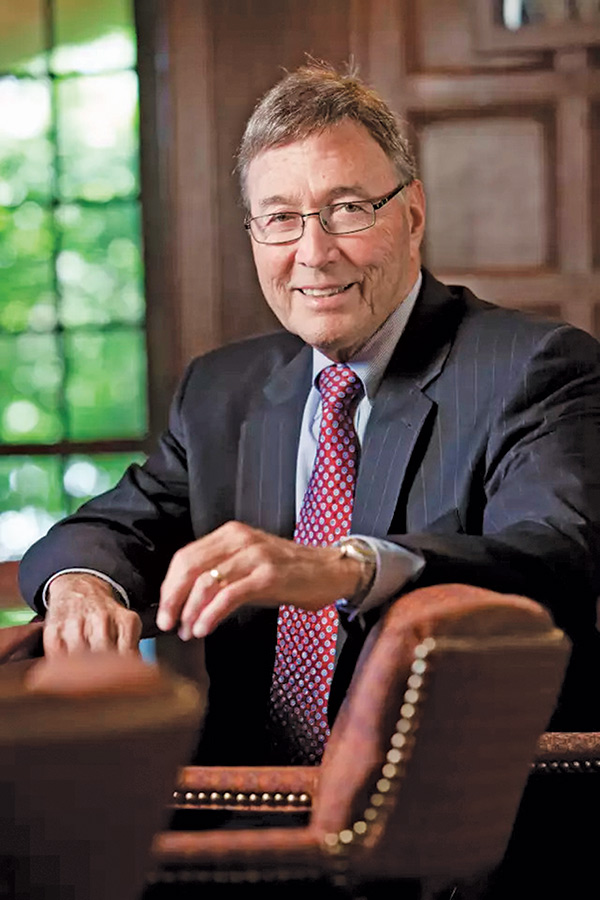
Joseph N. Hankin (Photo Credit: TC Archives)
Joseph N. Hankin (Ed.D. ’67), the nation’s longest-serving community college president, died in January at 78.
“You have to be cross-eyed — one eye on the stars, another on the minutiae on your desk,” said Hankin, TC’s 1977 Distinguished Alumni Award recipient. During his 42-year presidency, Westchester Community College tripled its enrollment and became Westchester County’s largest higher education institution, offering 50 different career training programs.
Hankin received his TC doctorate in Administration of Higher Education, taught at TC and advised its Community College Research Center (CCRC).
“I sat in on Dr. Hankin’s community college class and still benefit from many insights and lessons,” said TC President Thomas Bailey, CCRC’s founding director. “The field has lost a dedicated and wise professional, to whom it owes much.”
Theorist Without Borders: Harold Noah
Beyond Compare
Harold Noah changed comparative education to a field that explains and predicts
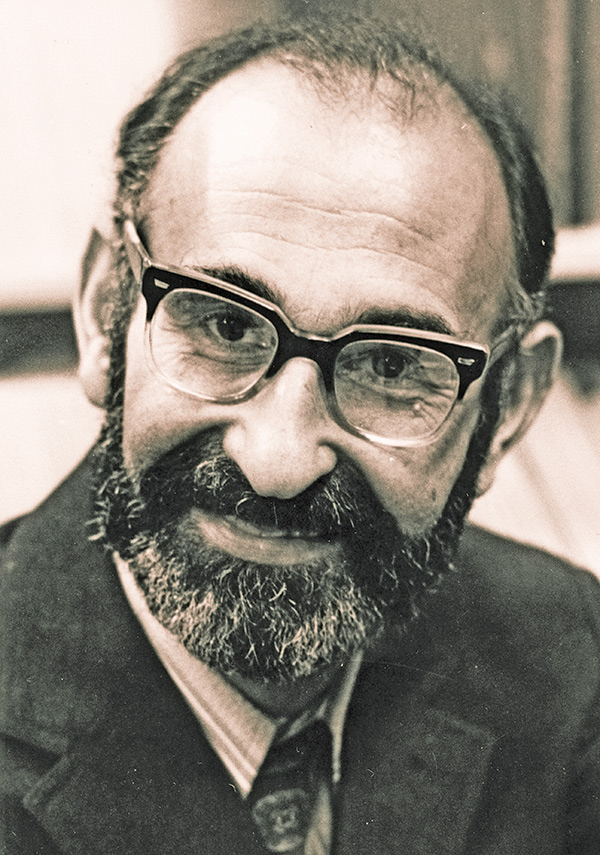
Harold Noah (Photo Credit: TC Archives)
Harold J. Noah, (Ph.D. ’64), Professor Emeritus and former Dean of the College, and a giant in both comparative education and education economics, died in January at age 94.
Noah’s 1969 book, Toward a Science of Comparative Education, co-authored with his frequent collaborator, Max Eckstein (they met as doctoral students, working with TC political scientist George Bereday), helped to shift the field toward quantitative methodologies from political science, economics and sociology that could explain and predict rather than simply describe phenomena. Noah also pioneered the use of cross-national comparisons among multiple nations. He helped launch the field of international large-scale assessment, which now encompasses global evaluations such as Trends in International Mathematics and Science Study (TIMSS) and Program for International Student Assessment (PISA). His ultimate goal was to develop generalizable theories that could be applied across cultures and nations.
Yet ultimately, Noah transcended any “ism.” In his early work, he focused on education systems in the Soviet Union, facilitated by his fluency in Russian (which he learned so he could read Pushkin in the original). He was present at the first meeting of the Comparative & International Education Society in 1956, at which officers were elected by a show of hands, and would later become president of the organization, which today boasts thousands of members.
Noah mentored generations of TC students and served as Dean of the College for five years during the presidency of his friend and colleague, the late Lawrence Cremin. n Those wishing to honor Harold Noah’s memory can contribute to the Professor Harold J. Noah Scholarship in Comparative & International Education by contacting Linda Colquhoun at 212 678-3679.
Voice for Equality: Olivia Hooker
She Survived — and Thrived
Olivia Hooker, 103, endured the Tulsa Race Massacre, helped integrate the Coast Guard and advocated for learning disabled students
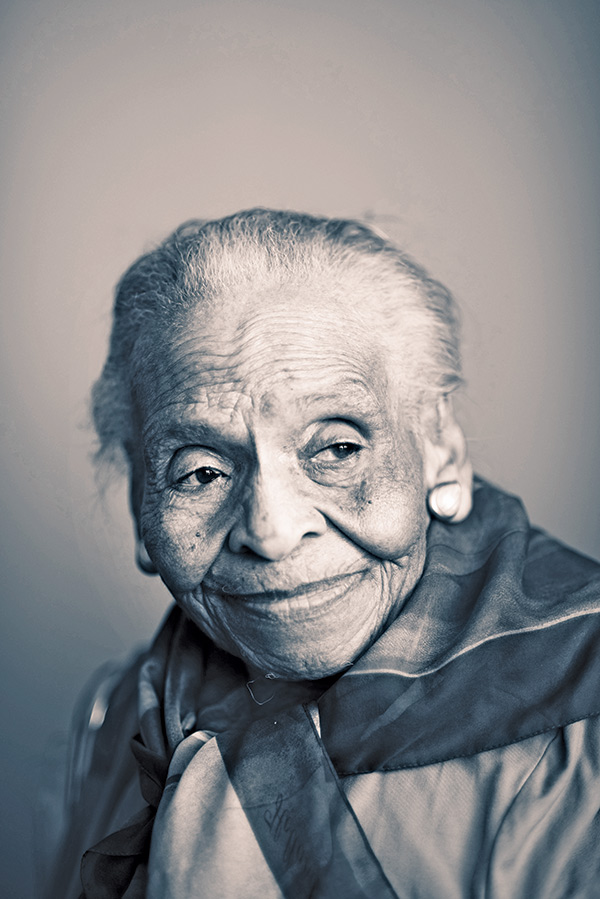
Olivia Hooker (Photo Credit: Kartsen Moran)
Educator Olivia Hooker (M.A. ’47), the last survivor of the Tulsa Race Massacre of 1921 and the first active-duty African American woman in the U.S. Coast Guard, died in November at 103.
As Professor of Psychology at Fordham University, Hooker founded a division of the American Psychological Association focused on individuals with developmental and intellectual disabilities, her areas of specialization. She received TC’s Distinguished Alumni award in 2016.
Some 300 black Tulsans perished during two days in 1921 when false reports of a black teen assaulting a white woman prompted a white mob to attack Tulsa’s prosperous black Greenwood district. In an interview with National Public Radio, Hooker recalled her mother hiding her and her three siblings under a table as white marauders ransacked their home. “The most shocking thing was seeing people, to whom you had never done anything to irritate, who just took it upon themselves to destroy your property because they didn’t want you to have those things.”
Hooker graduated from The Ohio State University and was teaching elementary school at the outset of World War II. Rejected by the Navy, she instead joined the Coast Guard, which in 2015 would name a Sector New York Galley on Staten Island for her. At the Coast Guard Academy’s 2015 commencement, President Barack Obama hailed Hooker as “a tireless voice for justice and equality.”
In 2016, when illness prevented her from appearing at TC’s Academic Festival to receive the Distinguished Alumni Award, Hooker sent a videotape in which she saluted the College for helping minority students “cross the great divide” and thanked her mentor, the late TC psychologist Nicholas Hobbs. “Once in a while you find somebody that’s spent their lives trying to make things better for all of us,” Hooker said. For all who knew her, those words described Olivia Hooker as well.
Independent-Minded: Pearl Rock Kane
Leading: Her Life
Pearl Rock Kane (Ed.D. ’83) brought intellectual richness and moral reflection to the preparation of independent school leaders
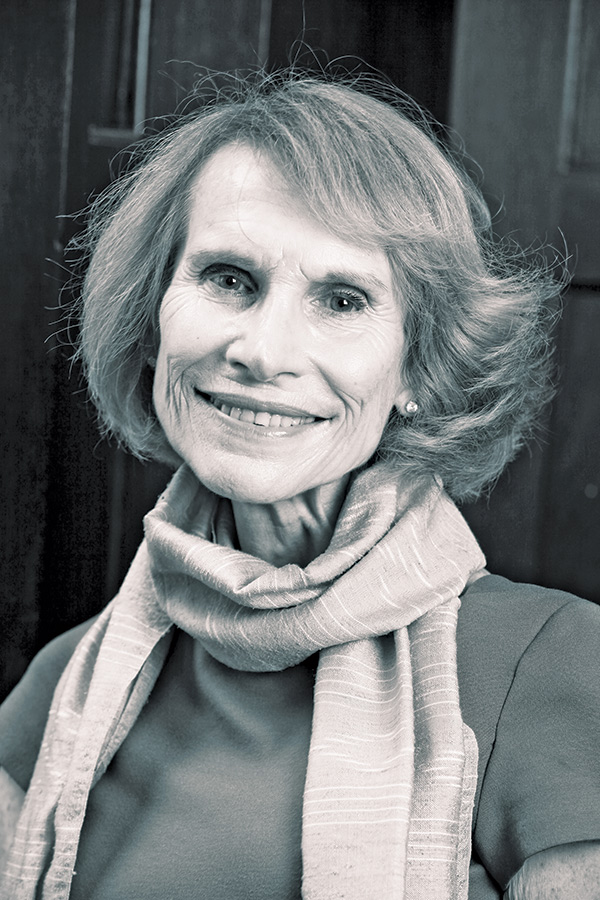
Pearl Rock Kane (Photo Credit: Bruce Gilbert)
Pearl Rock Kane, former director of Teachers College’s Klingenstein Center for Independent School Leadership, died in late February.
In 1977, on leave from New York City’s Dalton School, Kane arrived at TC in the first cohort of Klingenstein Fellows. The program’s creator, Trustee John Klingenstein (who died in 2018), soon tapped Kane to become the Center’s director, and she went on to earn a doctorate and become the first tenured woman in the Department of Educational Administration.
She led the Klingenstein Center for 37 years, was named TC’s Klingenstein Family Professor and built the Center into the pre-eminent organization of its kind.
Kane’s famous dictum was that leadership is a behavior, not a position or a title. She immersed her students in the study of moral leadership, teamwork and diversity, while attracting more women and people of color. She infused the preparation of independent school leaders with new richness, applying theories of change and organizational behavior, tackling issues such as teacher attrition and presenting new information on brain research, child and adolescent development, and curriculum design. And at a time when most administrators were former teachers who had learned on the job, Kane introduced courses on ethics, law, marketing, finance, cognitive development and negotiation.
Today, the Center, led by Nicole Brittingham Furlonge, offers five separate venues that serve leaders and aspiring leaders throughout their careers. It reaches educators worldwide through the Klingbrief newsletter and “The Science of Learning: What Every Teacher Should Know” free online course.
“Pearl’s passing is a major loss,” said TC President Thomas Bailey, “but we are thankful that her humanity, decency, vision and love live on through the Center she helped create and build, and through her students, who have helped shape countless young people into engaged, responsible and productive adults.”
Receiving TC’s President’s Medal of Excellence at a special gala event in April 2018, Kane called TC the ideal home for the Klingenstein Center and herself: “John Dewey believed that education isn’t merely preparation for life — it is life. In the most personal and literal sense, that’s been true for me.”
To honor Kane’s memory, contribute to the Pearl Rock Kane Scholarship Fund, benefiting students enrolled in the programs of the Klingenstein Center, at tc.edu/pearlkane